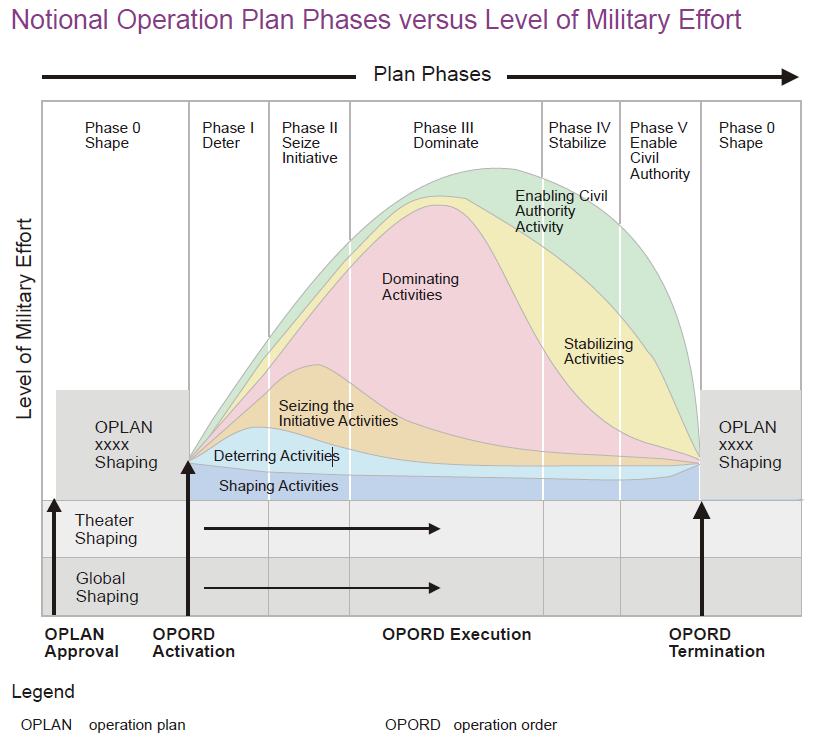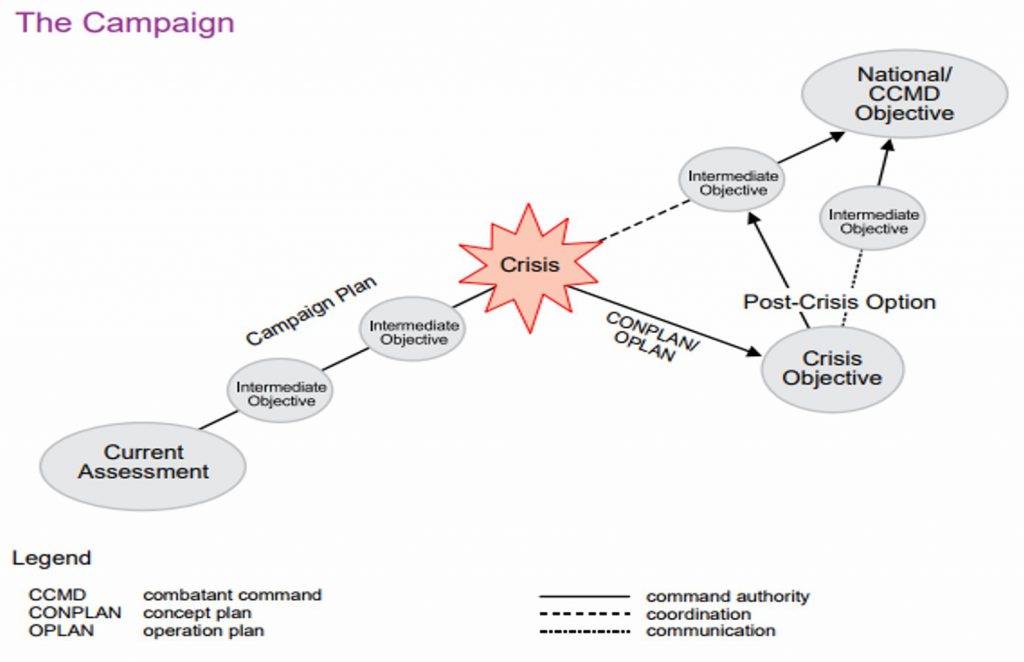If there’s one topic that lends itself to pedantry, it’s military doctrine. Add in a little strategy and cross-cultural thinking and you’ve hit the trifecta required for heated dogmatic commentary. However, in the hope of creating some greater understanding, let’s delve a bit into how doctrine captures the intellectual evolution of military thought, despite the veneer of what some consider unchanging military jargon. In the end, I think we’ll find some illumination not just on military doctrine, but also on strategy and how both affect our military forces.
Any military discussion requires genuflection to the past, so we’ll begin with an apocryphal saying from the Cold War. Attributed to an anonymous Soviet officer frustrated by his attempts to figure out the Americans, it goes: ‘A serious problem in planning against American doctrine is that the Americans do not read their manuals, nor do they feel any obligation to follow their doctrine.’ While enjoyable to relate, it’s not true, at least not in the contemporary military. In fact, military members tend not only to use doctrine, but to abuse it shamelessly to sell their latest projects or ideas—and to conform it to their conceptions of linear military campaigns.
An example of that abuse is the doctrinaire approach to phasing in planning and execution depicted in Figure 1. That phased approach to planning was used for decades in joint doctrine. It was designed to depict how to think about breaking up a military campaign into smaller chunks for planning. Instead, it became a checklist on which planning was based. It even crept into the defence vernacular, with steady-state operations becoming ‘Phase 0’, conventional war ‘Phase 3’, etc. Military leaders and planners began thinking in those arbitrary phases.
Figure 1: Phases of a notional operation plan versus level of military effort

Source: US Department of Defense 2011, Joint Publication 3-0, Joint Operations (PDF)
Make no mistake, this linear approach plays on the greatest strengths of military planners and leaders: the thoughtful, methodical coordination of military resources to achieve objectives that have been developed and clearly defined by defence and policy leadership. However, clear objectives and adversaries who lend themselves to linear military solutions are rare. Take, for instance, operations in Iraq post-Saddam, Afghanistan since 2001, East Timor or Vietnam. Or look at the ‘grey zone’ (PDF) conflicts that are now slowly burning in Eastern Ukraine and the South China Sea.
In an attempt to shift military planning from linear to more diverse approaches and determine how to plan and act in ‘not quite war’ scenarios, most Western militaries have embraced tools such as complexity theory and design methodologies (PDF). The most recent example is the latest version of the US military’s doctrine on joint operations (PDF). Instead of linear contingency campaigns, it focuses on developing steady-state, continuous campaign plans as the foundation of all military action. The linear, contingency-based planning then becomes an offshoot of overall campaigns, as depicted in Figure 2.
Figure 2: A new campaigning construct

Source: US Department of Defense 2017, Joint Publication 5-0, Joint Planning (PDF)
The shift away from linear campaigns is explained as follows:
[Military planning] seeks to capitalize on the cumulative effect of multiple coordinated and synchronized operations, activities, and investments that cannot be accomplished by a single major operation. [Emphasis added]
The new doctrine appears to encourage an approach to thinking in ‘cumulative’ terms over the linear. This harks back to a less well-known strategic thinker, but one with many lessons for today, J.C. Wylie.
In his Military strategy: a general theory of power control, Wylie proffered a useful approach to military campaigns, postulating that military forces should focus on asserting control where possible to create strategic advantage. That is in sharp contrast to conventional linear thinking about war as a loss of equilibrium that must be regained, and about war and peace as a black-and-white dichotomy. Wylie believed that thinking about control, as opposed to a war versus peace, would result in better long-term decisions, and thereby a greater comparative advantage strategically.
Wylie’s theory of control has two categories of strategies, sequential and cumulative. Sequential strategies are offensive assertions of control, typically in a linear campaign, that strive for finality. An example might be the series of engagements that would ultimately seize and occupy a capital city, à la the coalition forces’ march on and seizure of Baghdad in 2003. On the other side, cumulative strategies are a defensive aspect of control that take the strength of an adversary, effectively denying its ability for decision or finality. This then creates an overwhelming series of actions that exhaust the enemy. An example of this approach might be the Allied bombing campaign of Germany in 1943, which degraded military industrial production.
With the addition of such concepts as cumulative strategy to the stereotypical sequential approaches found in military theory, even incrementally, the military is better positioning itself to address both steady-state operations, as managed by the regional combatant commands, and slow-burning ‘not quite wars’. That’s certainly a step forward.
However, conceptual change in the military is a slow process. It takes years to disseminate new approaches into professional military education, into training, and into use by operational and strategic planners. Such a change also logically dictates changes to institutional structures, authorities and processes, to include interoperability with allies and partners. I’ll address those implications in future posts.

